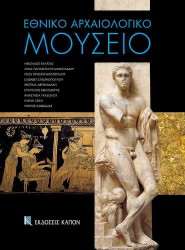Full Description
A collection of thought-provoking essays that treat the political, social, and philosophical themes of Shakespeare's plays
In Shakespearean Issues, Richard Strier has written a set of linked essays bound by a learned view of how to think about Shakespeare's plays and also how to write literary criticism on them. The essays vary in their foci—from dealing with passages and key lines to dealing with whole plays, and to dealing with multiple plays in thematic conversation with each other. Strier treats the political, social, and philosophical themes of Shakespeare's plays through recursive and revisionary close reading, revisiting plays from different angles and often contravening prevailing views.
Part I focuses on characters. Moments of bad faith, of unconscious self-revelation, and of semi-conscious self-revelation are analyzed, along with the problem of describing characters psychologically and ethically. In an essay on "Happy Hamlet," the famous melancholy of the prince is questioned, as is the villainy of Rosencrantz and Guildenstern, while another essay asks the reader to reconsider moral judgments and negative assessments of characters who may be flawed but do not seem obviously wicked, such as Edgar and Gloucester in King Lear.
Part II moves to systems, arguing that Henry IV, Measure for Measure, and The Merchant of Venice raise doubts about fundamental features of legal systems, such as impartiality, punishments, and respect for contracts. Strier reveals King Lear's radicalism, analyzing its concentration on poverty and its insistence on the existence and legitimacy of a material substratum to human life. Essays on The Tempest offer original takes on the play's presentation of coercive power, of civilization and its discontents, and of humanist ideals. Part III turns to religious and epistemological beliefs, with Strier challenging prevailing views of Shakespeare's relation to both.
A culminating reading sees The Winter's Tale as ultimately affirming the mind's capacities, and as finding a place for something like religion within the world. Anyone interested in Shakespeare's plays will find Shakespearean Issues bracing and thought-provoking.
Contents
Introduction: The Leading Thought
Part I. Individuals
Chapter 1. Excuses, Bepissing, and Non-Being: Shakespearean Puzzles About Agency
Appendix. "Say it is my humour"
Chapter 2. Happy Hamlet
Chapter 3. Resisting Complicity: Ethical Judgment and King Lear
Part II. Systems
Chapter 4. Shakespeare and Legal Systems: The Better the Worse (but Not Vice Versa)
Chapter 5. King Lear and Human Needs
Chapter 6. The Tempest (1): Power
Chapter 7. The Tempest (2): Labor
Chapter 8. The Tempest (3): Humanism
Part III. Beliefs
Chapter 9. Shakespeare and Skepticism (1): Religion
Chapter 10. Shakespeare and Skepticism (2): Epistemology
Chapter 11. Mind, Nature, Heterodoxy, and Iconoclasm in The Winter's Tale
Notes
Index
Acknowledgments








